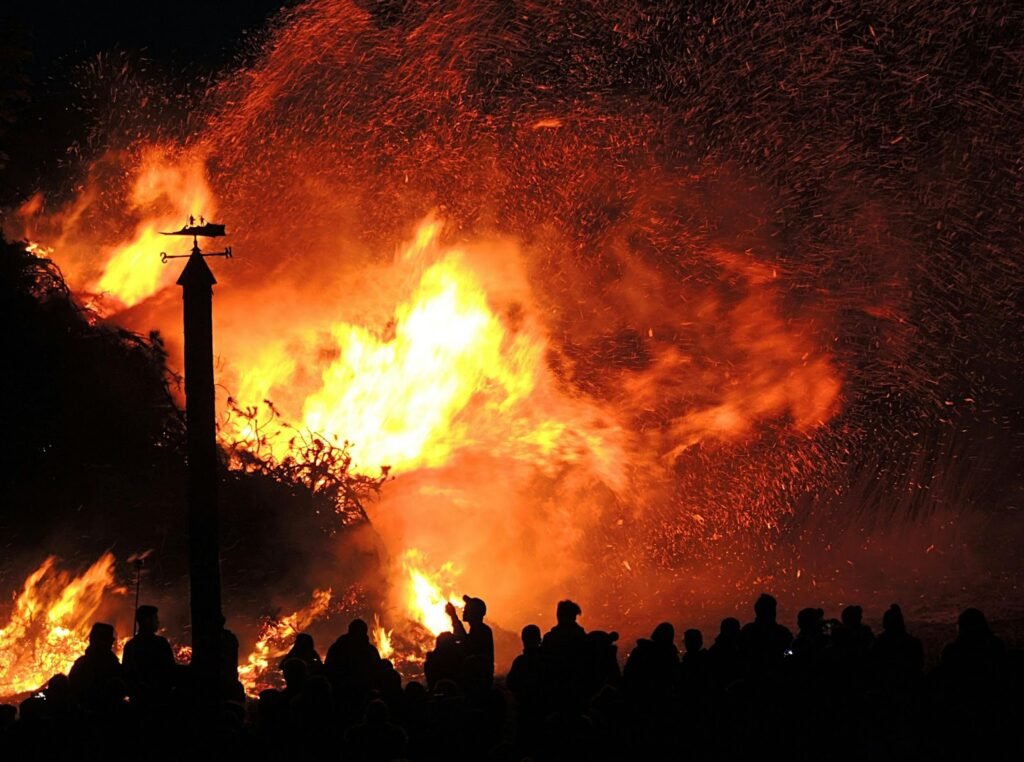Greece, a country synonymous with azure waters and ancient ruins, has been grappling with a relentless onslaught of wildfires in recent years. These infernos, fueled by a deadly combination of climate change, drought, and human factors, have devastated landscapes, displaced communities, and claimed lives. This article delves into the complexities of the Greek wildfire crisis, examining its causes, impacts, and the ongoing efforts to mitigate its devastating consequences.

The Infernal Cycle: Causes of the Greek Wildfires
Understanding the root causes of these infernos is crucial to developing effective prevention and response strategies.
Climate Change: Rising temperatures, prolonged droughts, and extreme weather events have created ideal conditions for wildfires to ignite and spread rapidly. Greece, like much of the Mediterranean, has experienced a significant increase in average temperatures, turning once-lush landscapes into tinderboxes.
Human Factors: Arson, negligence, and uncontrolled agricultural burning are significant contributors to the wildfire problem. While some fires are accidental, intentional acts of arson remain a persistent challenge.
Landscape and Vegetation: Greece’s diverse topography, characterized by mountains, forests, and coastal areas, presents unique challenges for firefighting. The abundance of flammable vegetation, such as pine and eucalyptus, fuels the intensity of wildfires.
A Devastating Toll: The Impact of Wildfires
The consequences of the Greek wildfires are far-reaching, affecting both the environment and human communities.
Environmental Devastation: Wildfires destroy habitats, reduce biodiversity, and contribute to soil erosion. The loss of forest cover has implications for water cycle regulation, carbon sequestration, and climate change mitigation.
Economic Losses: The tourism industry, a vital sector for Greece’s economy, suffers significant setbacks due to wildfires. Property damage, infrastructure destruction, and agricultural losses also contribute to economic hardship.
Public Health Risks: Smoke inhalation, burns, and other injuries are immediate health concerns. Long-term impacts include respiratory problems, mental health issues, and increased risk of certain diseases.
Fighting Fire with Fire: Response and Prevention Efforts
Greece has invested heavily in firefighting resources and infrastructure, but the scale of the challenge remains immense.
Firefighting Forces: A dedicated firefighting force, including ground crews and aerial support, is deployed to combat wildfires. International assistance is often sought during large-scale outbreaks.
Early Warning Systems: Advanced technology, such as satellite imagery and early warning systems, helps in detecting and monitoring fires.
Climate Action: Addressing climate change through reduced greenhouse gas emissions is crucial for long-term wildfire prevention.
Looking Ahead: Challenges and Opportunities
While significant progress has been made, the threat of wildfires in Greece persists.
Climate Resilience: Building resilience to climate change is essential. This includes developing early warning systems, improving firefighting capabilities, and implementing sustainable land management practices.
International Cooperation: Collaboration with other countries affected by wildfires can facilitate knowledge sharing and resource mobilization.
Research and Innovation: Investing in research and development to find innovative solutions for wildfire prevention and suppression is crucial.
Policy and Governance: Effective policies and governance are needed to address the complex challenges posed by wildfires.
The Inferno of 2023: A Case Study
The 2023 wildfire season in Greece was particularly severe, with multiple outbreaks causing widespread destruction. The fires in the Evros region, near the Turkish border, were particularly devastating, burning through vast swathes of forest and agricultural land. The combination of high temperatures, strong winds, and dry conditions created a perfect storm for these infernos.
Human Toll: The human cost of the wildfires was immense. Dozens of people lost their lives, including firefighters bravely battling the flames. Thousands were evacuated from their homes, many losing everything in the process.
Environmental Catastrophe: The ecological impact was equally catastrophic. Forests that had stood for centuries were reduced to ashes, wildlife perished, and soil erosion became a significant concern.
Wildfires in Greece: Frequently Asked Questions
General Information
What is the current wildfire situation in Greece?
While I cannot provide real-time data without a specific date, I can offer general information. Greece experiences wildfire seasons, typically during the hot and dry summer months. These fires can be widespread and pose significant risks. It’s essential to check official government sources and news outlets for the most up-to-date information on specific regions and fire activity.
Where are the wildfires in Greece?
Wildfires can occur in various regions of Greece, but certain areas, such as the mainland and islands, are more prone to them due to their geographical and climatic conditions. For the most accurate and current information on wildfire locations, consult official government sources and news reports.
How long have the wildfires been burning in Greece?
Wildfire seasons in Greece can last for several months, typically from late spring to early autumn. The duration of individual fires varies depending on factors like weather conditions, vegetation, and firefighting efforts.
What caused the wildfires in Greece?
Wildfires in Greece are often caused by a combination of factors, including:
Climate change: Rising temperatures and prolonged droughts create ideal conditions for fires.
Human activities: Accidental or intentional fires, such as discarded cigarettes, campfires, andagricultural burning, can ignite wildfires.
Natural causes: Lightning strikes can also start fires.
Impact and Response
How are the wildfires affecting people and the environment?
Wildfires in Greece can have devastating consequences, including:
- Loss of life and injuries
Destruction of homes and property
Damage to ecosystems and wildlife
Air pollution and health risks
Are there any evacuations due to the wildfires?
Evacuations are common during wildfire emergencies. It’s crucial to follow the instructions of local authorities and evacuate if advised. Stay informed through official channels for the latest updates on evacuation orders.
Is it safe to travel to Greece during wildfire season?
While wildfire risk increases during the summer months, many parts of Greece remain unaffected. However, it’s essential to research specific destinations and stay updated on wildfire conditions before traveling.
Conclusion
Greece’s battle against wildfires is a stark reminder of the interconnectedness of environmental, social, and economic factors. By understanding the causes, impacts, and response efforts, we can work towards a future where the risk of these devastating fires is significantly reduced.
To read more, click here.
